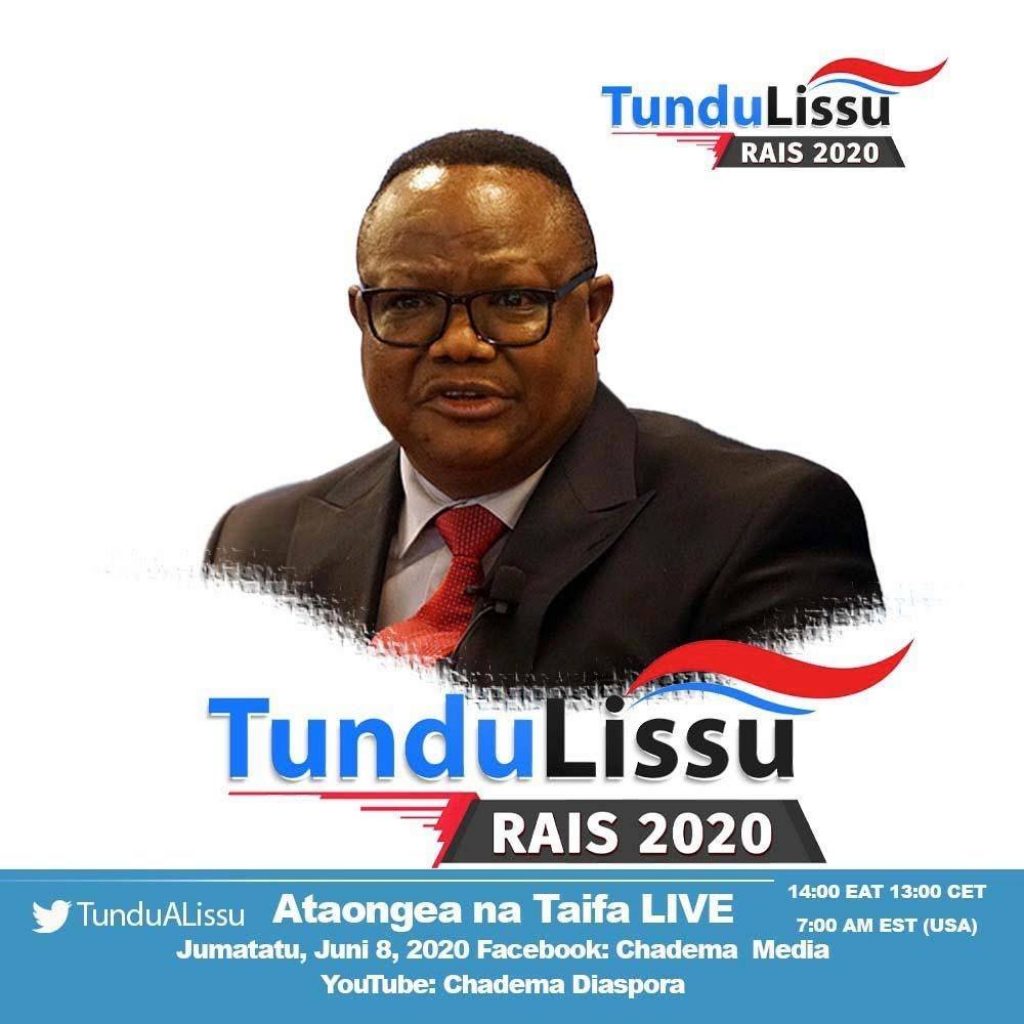Tundu Lissu Launches Campaign for President of Tanzania

This week the former opposition lawmaker Tundu Lissu, who survived a violent assassination attempt just three years ago, has announced his bid to campaign for the presidency of the Republic of Tanzania.
Mr. Lissu, who is a client of Amsterdam & Partners LLP, will contest against the incumbent Chama cha Mapinduzi (CCM) President John Magufuli, pledging to restore democracy and rule of law while revitalizing Tanzania’s stagnating economy.
“Our country is at a crossroads. In the five years which will end in October, our country has been under the iron-fisted rule of President John Magufuli and his CCM party. During these five years, President Magufuli has brought the country to the brink of economic, political, and diplomatic disaster,” Lissu said during his launch speech.
In our advocacy outreach on behalf of Mr. Lissu, which in fact has helped contribute to a decision by the Inter-Parliamentary Union (IPU) to conduct an investigation into the 2017 assassination attempt, it has always been clear that the attack on his life took place shortly in the wake of Mr. Lissu making very strong and clear denunciations of the authoritarian conduct of President Magufuli.
Elected in 2015 on an anti-corruption platform, Magufuli has since plunged Tanzania into a downward spiral of despair, including attacks and arrests against opposition party members, attacks on free speech with a draconian social media tax, attacks on free enterprise with the creeping expropriation of companies, and attacks on Tanzania’s democratic system.
Writing for the Council on Foreign Relations, Jeffrey Smith – who was a recent guest on our podcast – argues that Magufuli represents a significant threat to the future stability of the country by abusing the legal system as a weapon to attack the rights of his opponents.
“In an alarming number of instances, the government has failed to present evidence in court, resorting instead to perpetual adjournment on grounds of ‘incomplete investigations,’ such as in the case of Mr. Kabendera. This strategy of ‘persecution by prosecution’ is indeed a hallmark of modern dictatorships; Zimbabwe is a prime example. It often fails to garner the global attention and condemnation that baton-wielding security forces otherwise would,” Smith writes.
In his campaign launch speech, Tundu Lissu promises to restore these essential freedoms and rescue the country from tyranny.
“The President has disregarded the economic reality and has run the economy through State House orders and edicts issued at political rallies. Using the armed forces, the intelligence services and the Tanzania Revenue Authority, the president has launched a vicious war on the private sector, seizing accounts and other assets of foreign and local businesses,” Lissu said.
Mr. Lissu accused President Magufuli of failing to plan for his grandiose projects which have ripped national coffers.
As a result, Mr. Lissu, says to procure the funds to finance his pet infrastructure projects, President Magufuli’s administration has imposed extortionist taxes on businesspeople ranging from the smallest proprietor to the largest magnate.
“These taxes have been collected with shocking brutality. Business owners have been blackmailed into paying exorbitant sums of money on pain of being arrested and imprisoned under the country’s draconian economic crimes laws,” he says.
Mr. Lissu alleges that the iron-fisted rule of President Magufuli led to the death of the former chairman of the Tanzania Private Sector Foundation (TPSF) and has damaged the country’s overall ability to achieve economic growth.
“The outcome of this economic warfare on the private sector is clear to all. The economy is on life-support; many businesspeople and investors have fled Tanzania with their capital, shifting their operations, jobs and tax revenues to safer havens in neighbouring countries,” he said.
Mr. Lissu says this year’s general elections will decide whether President Magufuli gets another five years to continue his destruction of our national economy and impoverishment of our people, or whether Tanzania will get a fresh beginning.
Let’s hope the voters of Tanzania uses their voices to advocate for change before it’s too late.











